- Home
- Rick Mofina
Be Mine Page 14
Be Mine Read online
Page 14
“Yes.”
“Can you elaborate on Wilson’s relationship with them and how it connects her to this case?”
“No. Next question.”
Again the room surged.
“You. You in the blue shirt,” the chief said.
“John Miller, Associated Press. Has Molly Wilson been ruled out as a suspect?”
“She’s cooperating with the investigation. That’s all I’m prepared to say. Last question.”
Last question? Reporters complained. Ignoring them, the chief pointed to a reporter among those standing at the side of the room.
“Tom Reed, San Francisco Star,” he said. “Chief, do you have anything that points you to a suspect or a motive?”
“We’re working on all avenues of investigation.”
The chief stood to leave amid a barrage of questions, but Tom’s demand drowned out all of the others.
“Hold it one minute, sir!” Tom said. The chief halted, then turned to him. The room fell silent. A few TV cameras swung to Tom as still cameras shot picture after picture.
“With all due respect, Chief, I think the people of the city deserve better answers than you’ve been providing this morning.”
As a veteran of many battles, the chief was aware of the emotional ties between his dead detectives and the Star newsroom. He bowed his head slightly. “I’ll take one last question, Tom.”
“Do you have a suspect in this case?”
“I’ll make it clear. We have some leads. And we urge anyone with information on these cases to contact us. Thank you all.”
First Hooper. Now Beamon. What the hell was happening?
Returning to the Star building, Tom struggled to make sense of the last few hours. In the elevator, his body tremored as he ascended to the newsroom. He hadn’t had any sleep.
Coffee.
He craved coffee and got some from the newsroom kitchen before heading to his desk. On the way he saw Irene Pepper sitting in his chair, tapping a cassette tape against her nails. The one of his interview with Beamon.
“Good little conversation you’ve got here,” she said.
He tried to guess how she’d found out.
“I can’t help but think you were hiding it from me. Not good.” She grinned.
“I was not hiding it from you. I wasn’t done with that story.”
“And when were you going to tell me about this?”
“When I was finished checking things out on it.”
“Well, I’ve listened to it and I want you to write this up today.”
“I think we should wait,” he said.
Seeing what was transpiring, Acker came over.
“And you knew about this Beamon interview too?”
“Yes,” Acker said. “It wasn’t finished. Tom needed to check a few things out.”
“There’s nothing to check out. We go with it today.”
“I think we should wait,” Tom said.
Acker nodded.
“Why?” Pepper asked.
“Beamon’s murder is the story today. Our exclusive would be lost,” Tom said. “Besides, I can leverage it with Homicide.”
Pepper touched the tape to her chin and swiveled in the chair.
“No, we go today for tomorrow’s paper.”
“It’ll just get lost,” Acker said.
“It’ll have little impact,” Tom added. “If we wait a few days the story will cool and this interview will be hot. By then I’ll have had time to leverage Homicide for more. It’ll demonstrate that we own this story, Irene.”
Pepper stood.
“No. We go today.”
“That’s a mistake,” Tom said. “No one can possibly beat us on this interview now. We should wait a few days and get the best bang out of it. Going now would be a big mistake.”
Pepper eyed both men.
“I’m not the one who made a big mistake.” She put the tape in Tom’s pocket. “You did. We go today.”
THIRTY-SEVEN
By the time the news conference had started that morning, Sydowski and Turgeon were driving back to the location where they’d taken Molly the night before.
Listening to Mozart as they left San Francisco, they headed south, then east over the bay. Sydowski had not slept at all in the night. He lay in bed for ninety minutes flipping through the Old Testament searching for answers. Finding none, he’d forced himself to think of his birds, the weather, ordinary thoughts. Anything to keep ahead of the horror.
Now, as the Chevy’s tires click-clicked rhythmically along the San Mateo Bridge, Sydowski took stock of the case. The autopsy found that Beamon had died of a single gunshot wound to the head. The recovered round was a .40-caliber SXT Talon. The residue tests on Molly were negative. Canvass reports had two neighbors hearing a pop coming from Beamon’s bungalow in advance of Molly’s arrival. In Sydowski’s mind, Molly was no longer a suspect, but rather the single thread running through the bleeding wound inflicted on the homicide squad. He needed her to lead him to the killer.
They exited the bridge. Destination: Union City.
The San Francisco police and the California Justice Department used a small house on a quiet street in the Old Alvarado area to park witnesses safely when things heated up. It’s where they’d taken Molly. Today, Union City was sitting on it in an unmarked vehicle. Inside, two San Francisco detectives and a nurse were with her watching TV news reports on the case. Molly was on the sofa bed, knees drawn under her chin. She glanced up at Sydowski and Turgeon.
“Why don’t you guys take a break at the coffee shop down the street while Linda and I talk to Molly?” Sydowski said to the others.
“Would you like us to get you anything?” the nurse asked.
Molly smiled and shook her head, thanking her watchers as they left.
Turgeon switched off the set.
Sydowski sat on the sofa chair nearest Molly, produced his notebook. He got to work, asking her to review the list of all the men she’d dated for at least a month or longer over the last few years. The same list they’d drawn up after Hooper was killed.
Before he pursued Beamon.
His murder meant a realignment of the case. Hell, it was a new case. It meant going back on everything hard. Scrutinizing Molly’s boyfriend list. She took Sydowski’s pen and looked at the names. She took a few moments to think about it, made notes, then passed it back to him.
“Murdoch, Glazer, and Yarrow, you never gave us these guys after Hooper,” Sydowski said.
“They don’t live in the Bay Area. And I don’t think they were even around at the time Cliff and Ray were killed.”
“Tell us about them and we’ll determine if that’s true.”
“Steve Murdoch’s a movie technician who lives in Los Angeles. Travels a lot. I dated him when they shot Pitt’s last movie in Golden Gate Park. He works mostly on big-budget films. Rob Glazer, the airline pilot, lives in San Diego. I met him on a flight. Frank Yarrow’s an old boyfriend who was in town on business, then left.”
“What does Yarrow do?”
“A security consultant, or something. I think he lives in Kansas City, I think, or Colorado before that. He’s recently divorced and shaken by it. He wanted to see me. Oh, and Glazer, it turns out, was cheating with me on his wife. I didn’t know at the time. I told him I hated what he did to me and to her. He was a creep.”
Molly went through her bag for her address book and gave Sydowski every iota of contact information she’d had on all of the men.
“Some of this might be outdated,” she said.
“What about the message on the wall?” Sydowski passed Molly a color picture from the crime scene:
Why, Molly?
“Does that scrawl or script look familiar? Anyone you know use that phrase, or term, a lot? Any idea of its significance?”
Blinking quickly, she shook her head.
“What about the crazies, the idiots who contact you through the paper and Vince Vincent’s TV show?”
“I never really see them or have any contact with them. We have security at the paper. I might get a strange letter or pervy e-mail at the paper.”
“And Vincent’s show.”
Molly shook her head.
“The station blocks or intercepts everything. The producer has told me how some of the stuff addressed to me is revolting and disgusting. Guys send videos of themselves doing things, or call, or write to graphically discuss their fantasies. You’d have to check with the show.”
Sydowski studied a page in his notes.
“The last time we talked, you said you had this weird feeling someone was watching you. You said you felt it that night at Jake’s bar just before you found Hooper.”
“At times it was like I was being watched or followed. Even now, I’m not sure.”
“What do you mean?”
“I mean, I could’ve been just hyper-paranoid after finding Cliff. I mean, I thought I saw a guy. But it could’ve been a reporter or photographer. Could’ve been a cop.”
“You have a description, a vehicle, a plate? Anything?”
“No. White guy maybe. A late-model sedan.”
“Nothing more than that?”
Molly shook her head. “It could’ve been my imagination.”
“Why do you think that?”
“Because I haven’t gotten a full night’s sleep since Cliff was killed. I’ve been exhausted and an emotional basket case.” Her chin crumpled and she covered her face with her hands. “And now this.”
Turgeon passed her a tissue and rubbed her arm until Molly regained a measure of composure.
“How long will I have to stay here?”
“This is not protective custody but we think it’s best if you keep a low profile for a few days,” Sydowski said.
“I want to go back to my apartment. I need to start putting my life back together.”
“Just a little while longer until we get on top of this,” Sydowski said.
“Well, can you take me to my place so I can get a few things, clothes and stuff?” Molly asked. “This was all so sudden.”
“I’ll take care of it for you later today,” Turgeon said. “Just write down what you want and where I can find it.”
Molly pulled a reporter’s notepad from her bag and started to list items. When Sydowski and Turgeon drove back to San Francisco, the afternoon sun was brilliant over the bay. The waves sparkled like diamonds as a bittersweet Italian opera wafted through the car’s speakers. It seemed a fitting piece of music for a nightmare, Sydowski thought, as he reviewed Molly’s amended list of former boyfriends.
The suspect list.
He slid a Tums in his mouth and cracked it between his teeth.
THIRTY-EIGHT
After Tom finished his story on Ray Beamon’s final interview he sent it through the computer system to the night desk for editing.
It was early evening.
Exhausted, he loosened his tie and bit into a chocolate bar. The questions troubled him. Who was hunting the city’s homicide detectives? And why? How did Molly figure into it? Who knows?
Tom leaned back, dreading Sydowski’s reaction to the story tomorrow. He was the one forever pushing Sydowski to swap data. But now that Irene Pepper had forced him to go with Beamon’s last words before Sydowski was even aware the tape existed, any chance of using it as leverage for a story from him was dead. Brilliant news judgment, Pepper, he thought.
Tom crumpled his wrapper and brushed his hands just as she materialized at his desk, holding a bunch of white roses.
“Just read your Beamon story. Not bad.”
He looked at the flowers. They were wrapped in blue pin-striped paper.
“I saw these arrive for Molly early this morning long before the other flowers.” Pepper nodded to several bouquets on Molly’s desk. “Someone put these in the fridge and must’ve forgotten.”
He said nothing.
“Would you please give them to Molly tonight?” Pepper smiled. “Pass along my condolences and let her know I’m extremely interested in a first-person story from her. It would be fantastic and we could syndicate it nationally. I’m not talking about her writing right away, of course. But very soon. Especially given that she figures so prominently in the murders of two detectives and the killer’s still out there.”
Tom said nothing.
“I’m assuming you’re going to see her.”
“Police have taken her someplace. No one knows where.”
“My word. They must fear for her safety.” Pepper saw others approaching. “Think about what I said, Tom. Maybe Della or Simon can help you get these to Molly.”
Della Thompson and Simon Lepp watched Pepper return to her office. Thompson picked up the new roses she’d left on Tom’s desk.
“More flowers. Who’re these from?” She read the card affixed in plain sight. “ ‘Molly, leave the past in the past and look to the future.’ ”
She passed the card to Tom. “What do you think?”
After reading it he said, “Another strange note for the collection. And as I recall, the same wrapping as the bunch she got right after Hooper’s murder. And these came early just like the other bunch did with Hooper’s murder.”
Tom fished around in his drawer for the earlier card.
“It had a strange note of condolence, too. Listen. ‘Please think of me. I’m thinking of you.’ And I think another bunch wrapped in blue pin-striped paper arrived after the first bunch. She got three strange ones. You’re shaking your head.”
“You’re thinking it’s the guy?” Thompson asked.
He shrugged.
“Well, I doubt it,” she said. “First of all, it looks to me like a woman’s handwriting on both cards.”
“Sometimes the flower shop people write the cards for you,” he said. “So you couldn’t assume anything from the handwriting.”
“All right. I just don’t see anything that strange about them. She’s received quite a few flowers since this all began,” she said.
“But where are these from?” Tom asked, examining the other flower bunches on Molly’s desk. “See, these all have logos, or names of the stores somewhere, on the card or wrapping. But not these. Just blue pin-striping, which is distinct from the others.”
Thompson kept shaking her head.
“Molly received a lot of flowers from everybody,” she said. “They’ve come here, or her apartment, from cop friends. Some went to Hooper’s place and now Beamon’s too. I heard quite a few went to Vince Vincent’s show. A lot of folks out there send flowers with cards.”
“You know,” Lepp said, “it’s been getting out how she knew both guys. Maybe some crazy out there is jealous and is trying to woo her now.”
“Maybe.” Thompson half smiled. “This is San Francisco. No shortage of wackos. But I think the theories you guys have aren’t that solid.”
Lepp changed the subject. “So, how do you think the investigation will go now?” he asked Tom.
“I think they’ll follow two basic tracks. Again, they’ll go back on Beamon’s and Hooper’s old cases looking for beefs, any link, and they’ll go back on Molly’s networks, disgruntled ex-boyfriends, and anyone who had the potential to be pissed off at her for any significant reason.”
“I’ll keep doing what I’m doing,” Lepp said. “I’ll search old stories. Beamon was in Robbery. I’ll talk to the guys there about old beefs. And Hooper worked in Taraval and Mission, which I haven’t checked yet.”
“And I’ll press my sources.” Tom watched Thompson stifle a yawn. “As for the flowers, all I’m thinking is maybe we should check this out when we have the time. I’m just curious to know who’s been sending them.”
Thompson collected them. “I’ll take them home and keep them for her. I’m wiped.”
“Hold up, I’ll walk out with you,” Tom said.
At home Ann had left him a plate of burritos, refried beans, and rice warming in the oven. It was good. After eating he had a hot shower, which melted awa
y enough fatigue for him to spend time with Zach before the evening ended.
They worked together on his model of the U.S.S. New Jersey, passing the time talking quietly about the battleship. But Tom sensed Zach had something more troubling than World War Two history on his mind.
“Is there anything else you want to talk about, son?”
“Well, there’s something I wanted to ask you but it’s not about the ship.”
“Go ahead. Shoot.”
“It’s about the murders you’re writing about.”
“The murders.” Tom hesitated. “Okay...what about them?”
“The guy’s just killing cops, right? I mean, I’m sad for them and their families, but he’s not going to be mad at you for writing about him, right?”
Tom looked into Zach’s face. This was the toll. The price exacted on his family from his job. He swallowed, then brushed Zach’s hair.
“No. He’s a sick person who seems to have it in for detectives. Maybe he’s a bad guy from their past. I don’t think we have to worry about it.”
“But Molly Wilson’s your friend and she’s kind of part of it.”
“Yes, and she was friends with the detectives. So was I, a little bit. It’s good that you’re sympathetic. But don’t worry, okay?”
Zach nodded.
Afterward when Ann was getting Zach off to bed, Tom crouched by the shelf holding her library of books on flowers, plants, and gardening. He inventoried the spines of her books. He was searching for one he hoped would be the key, one to the door that would bring him closer to the truth behind the murders.
The flower angle gnawed at him. He refused to give up on it. Where was that reference book? Despite the challenges of San Francisco’s climate, Ann had been working hard on creating a rose garden at their house. And after her recent ordeal she’d followed through on her intention to join a local rose society. She’d also devoted more time to studying the history and language of flowers. She’d become an amateur expert.
“What are you looking for?”
“I need to know something about roses. Like what does it signify when you give someone white roses? You know, the deeper meaning, that kind of thing.”

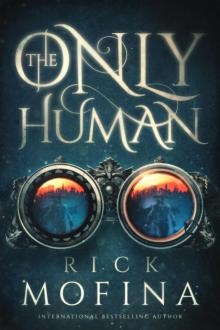 The Only Human
The Only Human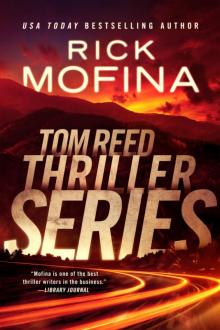 Tom Reed Thriller Series
Tom Reed Thriller Series![[Tom Reed and Walt Sydowski 04.0] No Way Back Read online](http://i1.bookreadfree.com/05/tom_reed_and_walt_sydowski_04_0_no_way_back_preview.jpg) [Tom Reed and Walt Sydowski 04.0] No Way Back
[Tom Reed and Walt Sydowski 04.0] No Way Back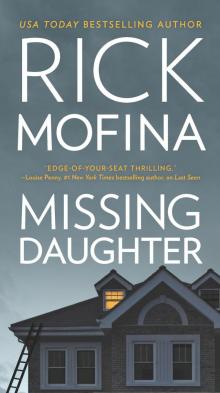 Missing Daughter
Missing Daughter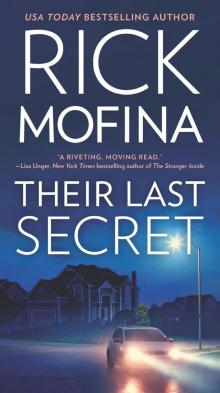 Their Last Secret
Their Last Secret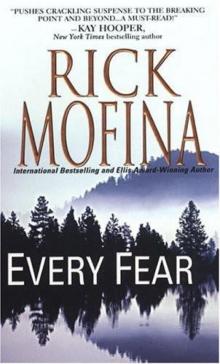 Jason Wade - 02 - Every Fear
Jason Wade - 02 - Every Fear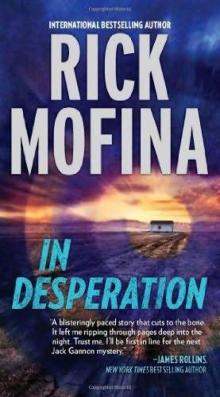 In Desperation
In Desperation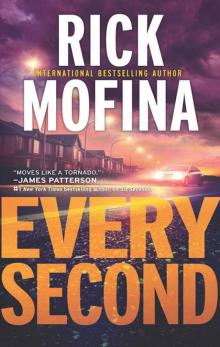 Every Second
Every Second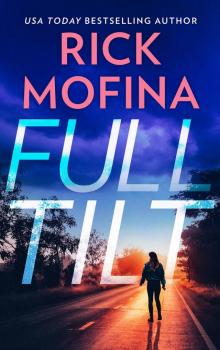 Full Tilt
Full Tilt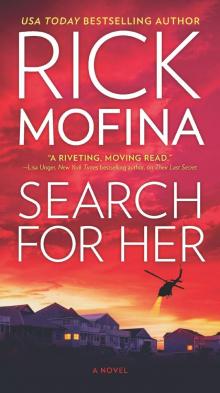 Search for Her
Search for Her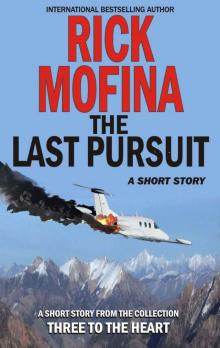 The Last Pursuit
The Last Pursuit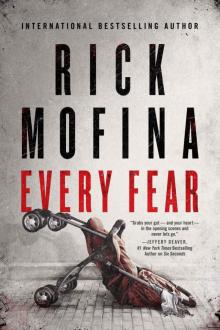 Every Fear
Every Fear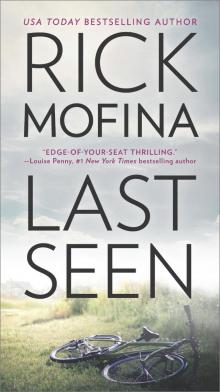 Last Seen
Last Seen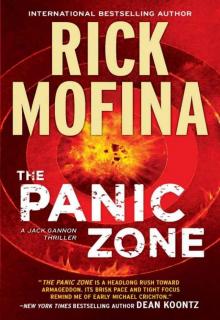 The Panic Zone
The Panic Zone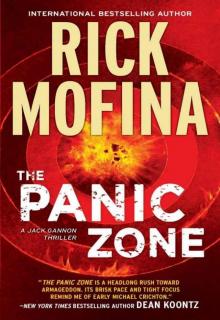 The Panic Zone jg-2
The Panic Zone jg-2 Free Fall
Free Fall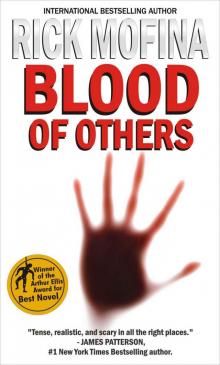 Blood of Others
Blood of Others![[Jason Wade 02.0] Every Fear Read online](http://i1.bookreadfree.com/i1/03/31/jason_wade_02_0_every_fear_preview.jpg) [Jason Wade 02.0] Every Fear
[Jason Wade 02.0] Every Fear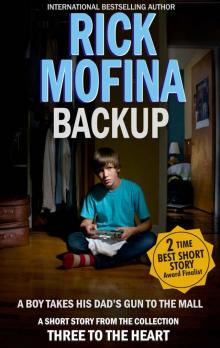 Backup
Backup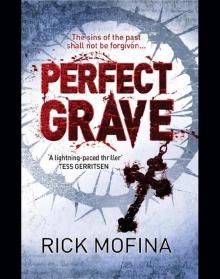 Perfect Grave
Perfect Grave Into the Dark
Into the Dark Whirlwind
Whirlwind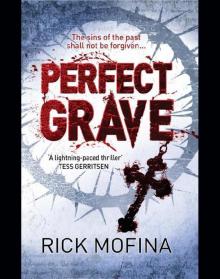 Perfect Grave jw-3
Perfect Grave jw-3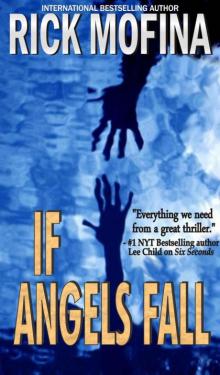 If Angels Fall (tom reed and walt sydowski)
If Angels Fall (tom reed and walt sydowski)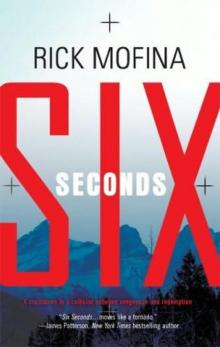 Six Seconds
Six Seconds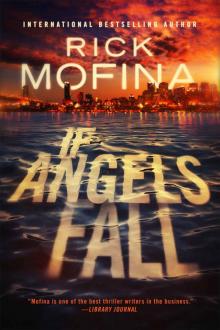 If Angels Fall
If Angels Fall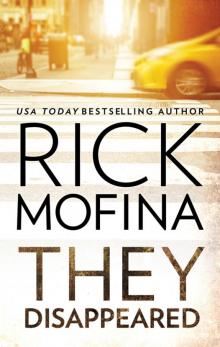 They Disappeared
They Disappeared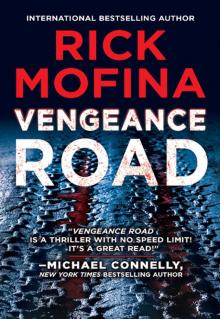 Vengeance Road
Vengeance Road Before Sunrise
Before Sunrise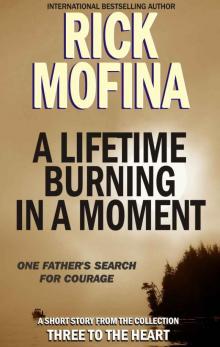 A Lifetime Burning in a Moment
A Lifetime Burning in a Moment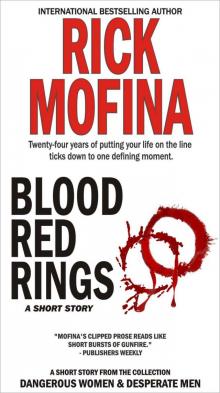 Blood Red Rings (Dangerous Women & Desperate Men)
Blood Red Rings (Dangerous Women & Desperate Men)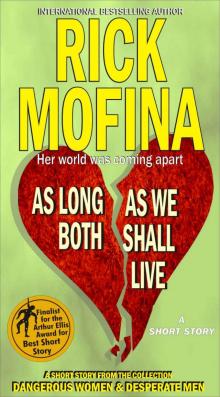 As Long As We Both Shall Live (Dangerous Women & Desperate Men)
As Long As We Both Shall Live (Dangerous Women & Desperate Men)![[Tom Reed and Walt Sydowski 01.0] If Angels Fall Read online](http://i1.bookreadfree.com/i2/04/12/tom_reed_and_walt_sydowski_01_0_if_angels_fall_preview.jpg) [Tom Reed and Walt Sydowski 01.0] If Angels Fall
[Tom Reed and Walt Sydowski 01.0] If Angels Fall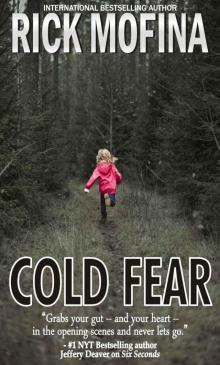 Cold Fear
Cold Fear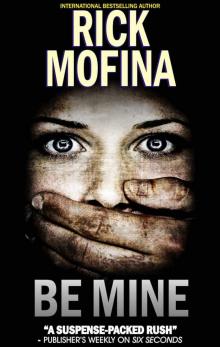 Be Mine
Be Mine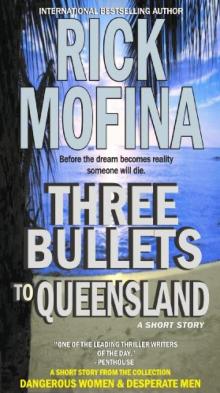 Three Bullets To Queensland
Three Bullets To Queensland